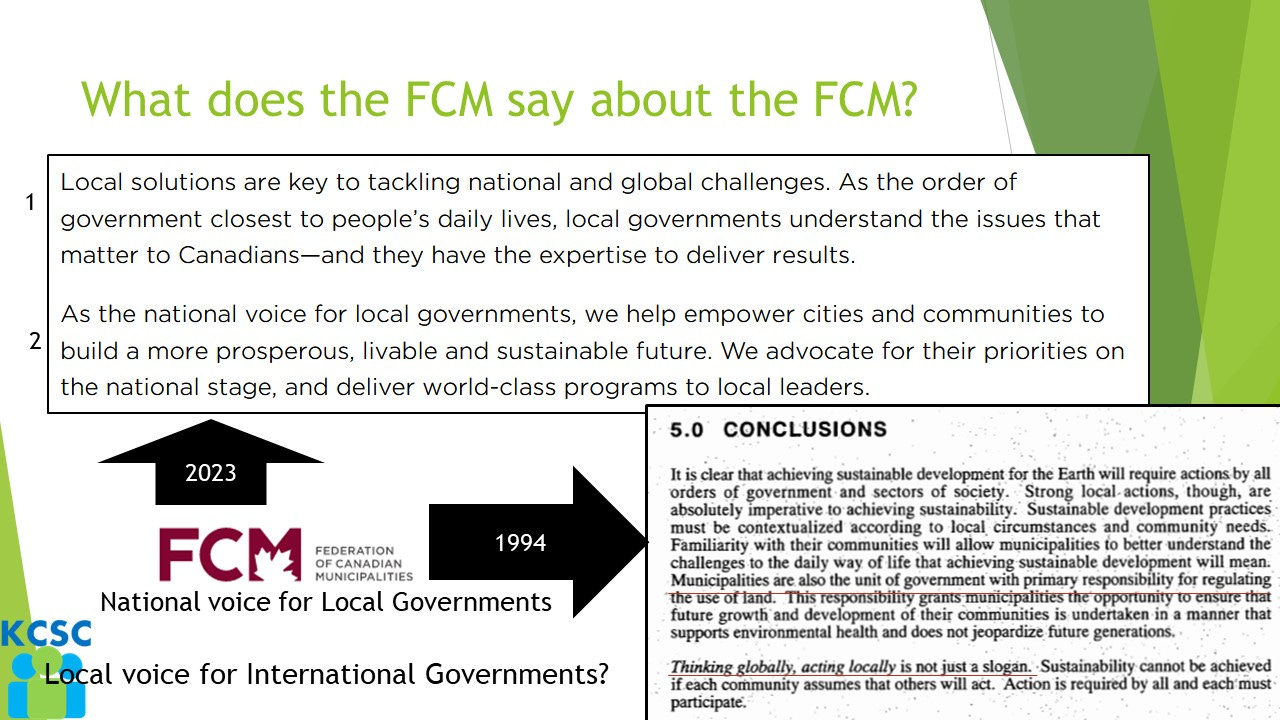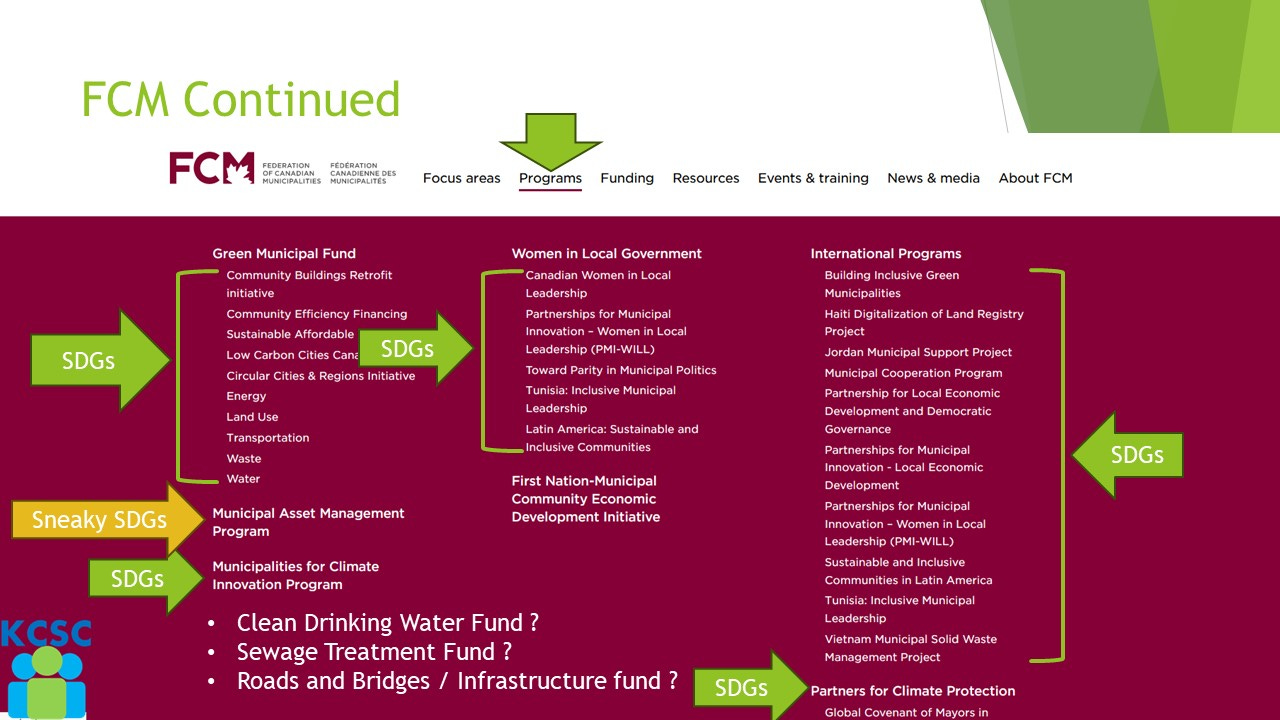Bypassing Section 92: How the UN and Federal Government Influence Municipal Governance
Origins and Impacts Series (Part 3)
Origins and Impacts Series: Bypassing Section 92
How the UN and Federal Government Influence Municipal Governance
Section 92 of the Constitution Act, 1867 grants exclusive authority over municipalities to provincial governments (Constitution Act, 1867). However, this constitutional framework has been effectively bypassed by the United Nations and the federal government through the use of the Federation of Canadian Municipalities (FCM) as an intermediary. By channeling funding and influence through the FCM, this approach circumvents provincial oversight and pressures municipalities to adopt United Nations Sustainable Development Goals (UNSDGs), tying financial incentives to compliance with international mandates.
The Role of the Federation of Canadian Municipalities (FCM): A Voice for Local Governments or a Conduit for UNSDGs?
The FCM was originally established to represent the interests of local governments at the federal level, advocating for policies and funding that reflect municipal priorities (FCM, 2024). However, its initiatives and funding mechanisms are now heavily aligned with UNSDGs, raising concerns about its effectiveness as a representative body for Canada’s diverse municipalities.
FCM initiatives, such as the Partners for Climate Protection (PCP) program and the administration of the Green Municipal Fund (GMF), embed global sustainability goals into municipal governance.
This alignment pressures municipalities to prioritize international mandates over locally defined priorities, eroding their autonomy and independence.
The Green Municipal Fund (GMF): Financial Incentives for Compliance
The GMF, established by the federal government and administered by the FCM, provides grants and low-interest loans to municipalities for projects that align with UNSDG principles (GMF, 2024).
1. Origins of the GMF
Financed by the federal government and managed by the FCM, the GMF offers funding for projects like energy efficiency, emissions reduction, and green infrastructure.
2. Conditional Funding
Access to GMF funding is contingent upon municipalities adopting UNSDG-aligned programs, such as climate action plans or emissions reduction targets.
Municipalities that choose not to align with these global goals are often ineligible for financial support, effectively coercing compliance.
3. Federal Influence Through Municipal Partnerships
By working through the FCM rather than directly with provinces, the federal government avoids constitutional limitations under Section 92.
This strategy ensures the adoption of federal sustainability priorities at the municipal level, bypassing provincial scrutiny and reducing local councils’ autonomy.
Implications for Municipal Governance
The GMF’s conditional funding model and the FCM’s role as an intermediary have significant consequences for municipal governance:
Provincial Authority Undermined
Engaging municipalities directly bypasses provincial oversight, eroding the constitutional framework that governs municipal affairs.
Coercive Funding Model
The GMF ties financial support to UNSDG compliance, forcing municipalities to prioritize global mandates, even when these conflict with local needs or priorities.
Shifting Priorities
Redirecting municipal resources toward global sustainability objectives often comes at the expense of essential services like infrastructure maintenance, affordable housing, and economic development.
Loss of Local Autonomy
Municipalities that adopt UNSDG-aligned programs become locked into rigid global mandates, reducing their flexibility to address community-specific challenges.
Conclusion
The United Nations and federal government have bypassed Section 92 of the Constitution Act, 1867 by leveraging the FCM as a conduit to implement global sustainability agendas at the municipal level. Programs like the Green Municipal Fund (GMF) further entrench this influence by conditioning financial support on compliance with UNSDG-aligned initiatives.
This strategy undermines provincial authority, compromises municipal autonomy, and pressures councils to prioritize international objectives over local governance and community needs. Municipalities must critically assess the long-term implications of aligning with these programs and advocate for funding models that respect constitutional boundaries, uphold local decision-making, and reflect the unique needs of their communities.
📥 Download the full report with references here (PDF).
🔔 Follow my Substack for more insights from the Origins and Impacts series, exploring how international policies shape Canadian municipalities.
Origins and Impacts Series: The Influence of International Sustainable Development Policies on Canadian Municipalities
Origins and Impacts Series: An Introduction






Just finished reading this Substack Dec 3rd from Dr. Meryl Nass' Substack...maybe some of the info will be useful to this group?
https://merylnass.substack.com/p/globalism-tries-another-play-over?